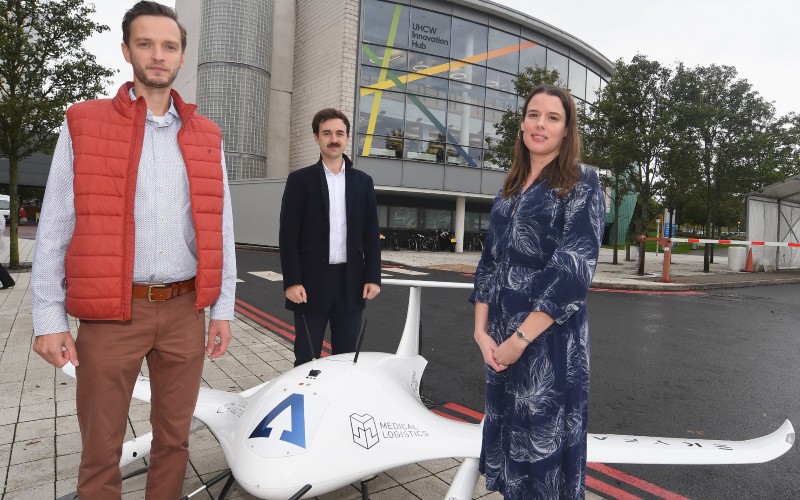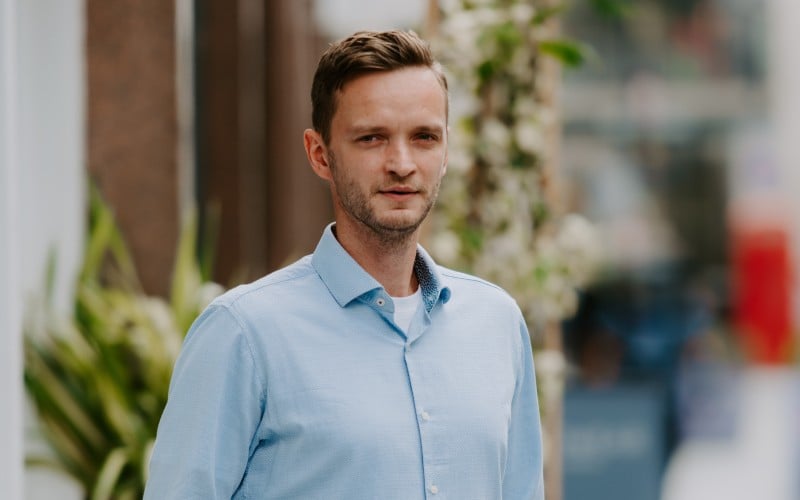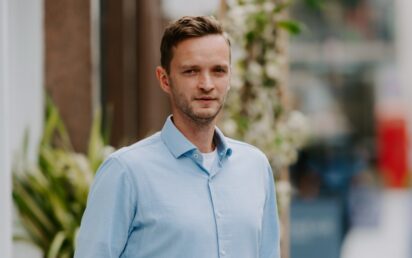Succeeding as an entrepreneur is tough – but few can have worked as hard for their success as Medical Logistics CEO Alex Landowski.
Having arrived in London from Poland with just £200 and a bicycle to his name, he was determined to pay off a debt left by a failed business attempt. However he was initially exploited by an unscrupulous employer, who he claims denied him promised pay after weeks of work, and a five-month search for employment followed.
“It was hard to break into my career here as a migrant, and I [eventually] started working as a bike courier,” he tells TechBlast.
He would make a name for himself as the fastest in the area, winning various underground bike courier street races. “I then worked my way up in the business, becoming one of the youngest senior operations controllers in the company,” he says.
“However, after 10 years in the industry, I started to notice a lack of innovation and recognised that medical courier companies were unwilling to deviate from the industry norms.
“The changes I wanted to make were too big to implement internally so I decided to quit and start my own business.”
Pregnancy scare
That business is Medical Logistics, described as London’s only 24/7 medical courier. It offers a wide variety of medical services – including mobile clinical services, sample collection, screening and clinical consultations, blood tests, COVID tests, IV drips, vaccines, employee screenings and health checks – and also transports time-critical deliveries from blood transfusions, blood samples, tissues, swabs, medication and X-rays.
“My experiences with the struggles of the industry were not just in my professional career, but also in my personal life,” explains Landowski.
“When my wife was eight months pregnant, she was bleeding and needed to see a nurse for blood flow testing. It was a hugely stressful experience when we were given a large window of 10am-6pm to expect a nurse, who never showed up.
“My wife and I both felt that we didn’t have visibility over this situation and that we couldn’t get the care she so desperately needed in a timely manner.
“This made me realise that people needed the option to get urgent medical tests done quickly and I decided to address this gap in the market.”
The startup recently completed a landmark medical drone flight corridor trial with Skyfarer, expert in aerial logistics, which ran for three months and connected 32km of airspace between the University Hospital Coventry and Warwickshire Trust’s hospitals in Coventry and Rugby.
A total of more than 1,889km was flown with 130 flights taking place safely at 30 Hours BVLOS (beyond visual line of sight). The drones flew at 400 feet above ground level, daytime and night-time, through 12m/s wind gusts.

The company, which grew turnover to £8 million during COVID, recently opened Medical Laboratories, a fully equipped testing facility which removes reliance upon third party providers.
Advice
“Take risks!” is his advice to fellow entrepreneurs. “Taking the plunge by leaving my previous job and starting Medical Logistics was a risk worth taking.
“It paid off: the business has a multi-million-pound turnover and our current clients even include my previous employer. Becoming an entrepreneur gave me full autonomy of my own company giving me the freedom to take risks and innovate.
“It’s great to find and break into a sector that is at its infancy and in need of innovation presenting opportunities to pioneer and be a leader in your market whilst creating meaningful change.”


